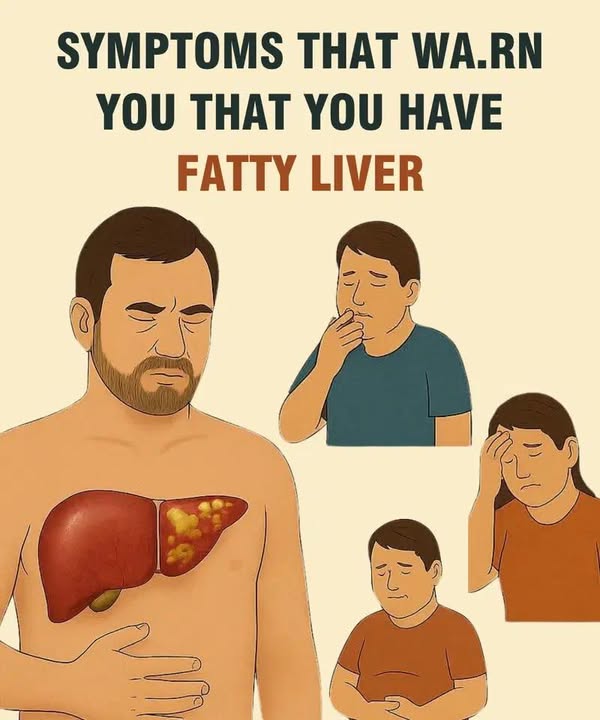Fatty liver—also called hepatic steatosis—is a fast-growing health problem affecting millions worldwide. It often goes unnoticed in the early stages because there are usually no obvious symptoms, making it tricky to diagnose.
Still, your body might be sending subtle signals that something isn’t right with your liver. Let’s break down what those signs look like, what causes fatty liver, and what you can do to support your liver naturally.
What Is Fatty Liver?
Fatty liver happens when excess fat builds up in your liver cells. This can be caused by:
-
Being overweight
-
Unhealthy eating habits
-
Drinking too much alcohol
-
Other lifestyle or medical factors
There are two main types:
-
Non-alcoholic fatty liver disease (NAFLD):
Fat accumulates in the liver, even if you don’t drink much alcohol. -
Alcoholic fatty liver disease:
Caused by heavy alcohol use, which damages the liver and leads to fat buildup.
Signs and Symptoms of Fatty Liver
Although early fatty liver often has no symptoms, as the condition progresses, you might notice:
-
Constant fatigue
The liver processes toxins and turns food into energy. When overloaded with fat, you may feel tired all the time. -
Pain or discomfort in the upper right abdomen
Some people feel a dull ache or discomfort where the liver sits. -
Bloating and fluid retention
Liver issues can make your body hold onto extra fluid, causing your abdomen to swell. -
Loss of appetite and unexplained weight loss
Sudden weight loss (without trying) can be a warning sign. -
Yellowing of the skin and eyes (jaundice)
If your liver can’t process bilirubin, your skin and eyes may turn yellow. -
Dark urine
Noticeably darker urine can point to liver problems.
What To Do If You Suspect Fatty Liver
If you spot any of these signs, see your doctor for a checkup. Diagnosis usually involves blood tests, ultrasounds, or sometimes a liver biopsy to confirm fatty liver disease and assess how advanced it is.
Steps to Improve Liver Health
You don’t have to wait for a diagnosis to take action. These steps can help protect and even restore your liver:
-
Eat a balanced diet:
Focus on antioxidant-rich foods like fruits, vegetables, whole grains, and healthy fats. Avoid processed foods, fried items, and sugary treats. -
Lose weight gradually:
If you’re overweight, slow and steady weight loss can help reduce liver fat. -
Exercise regularly:
Aim for at least 30 minutes of moderate activity (like walking or swimming) most days. -
Limit alcohol:
Cutting back or quitting alcohol can make a big difference for your liver. -
Consult a nutritionist:
A professional can help you craft a plan tailored to your needs.
Natural Ways to Support Liver Healing
Alongside healthy habits, certain natural remedies may offer extra support:
-
Milk Thistle:
This herb is known for protecting and rejuvenating liver cells. -
Green Tea:
Full of antioxidants, it may help lower liver fat and improve function. -
Ginger:
Acts as a natural anti-inflammatory and can boost digestion. -
Warm Lemon Water:
Drinking lemon water on an empty stomach may help flush and support your liver. -
Garlic:
Contains compounds that may reduce liver fat and support detoxification.
Just that—fatty liver is a serious health concern, but with awareness, healthy lifestyle choices, and natural support, you can give your liver the care it needs to recover and thrive.
